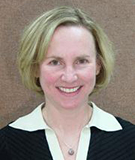How Science Shows The Damaging Effects of Ego on Career Success
mikayla.makleA successful former colleague of mine is someone who publicly, is without any airs. Privately, she believes she should be in an even bigger position than the one she’s in. She acknowledges she’s doing great work and receiving recognition for it. But like any person with a burning passion and desire, she wants much more.

Ego can lead to overconfidence. Being overly-confident often leads to mistakes. Dr. Joyce Ehrlinger, assistant professor of psychology at Washington State University, in a combined study with professors from Stanford and Florida State University, found overconfidence can lead to poor decisions:
“A little bit of overconfidence can be helpful,” said Ehrlinger, “but larger amounts of overconfidence can lead people to make bad decisions and to miss out on opportunities to learn.”




